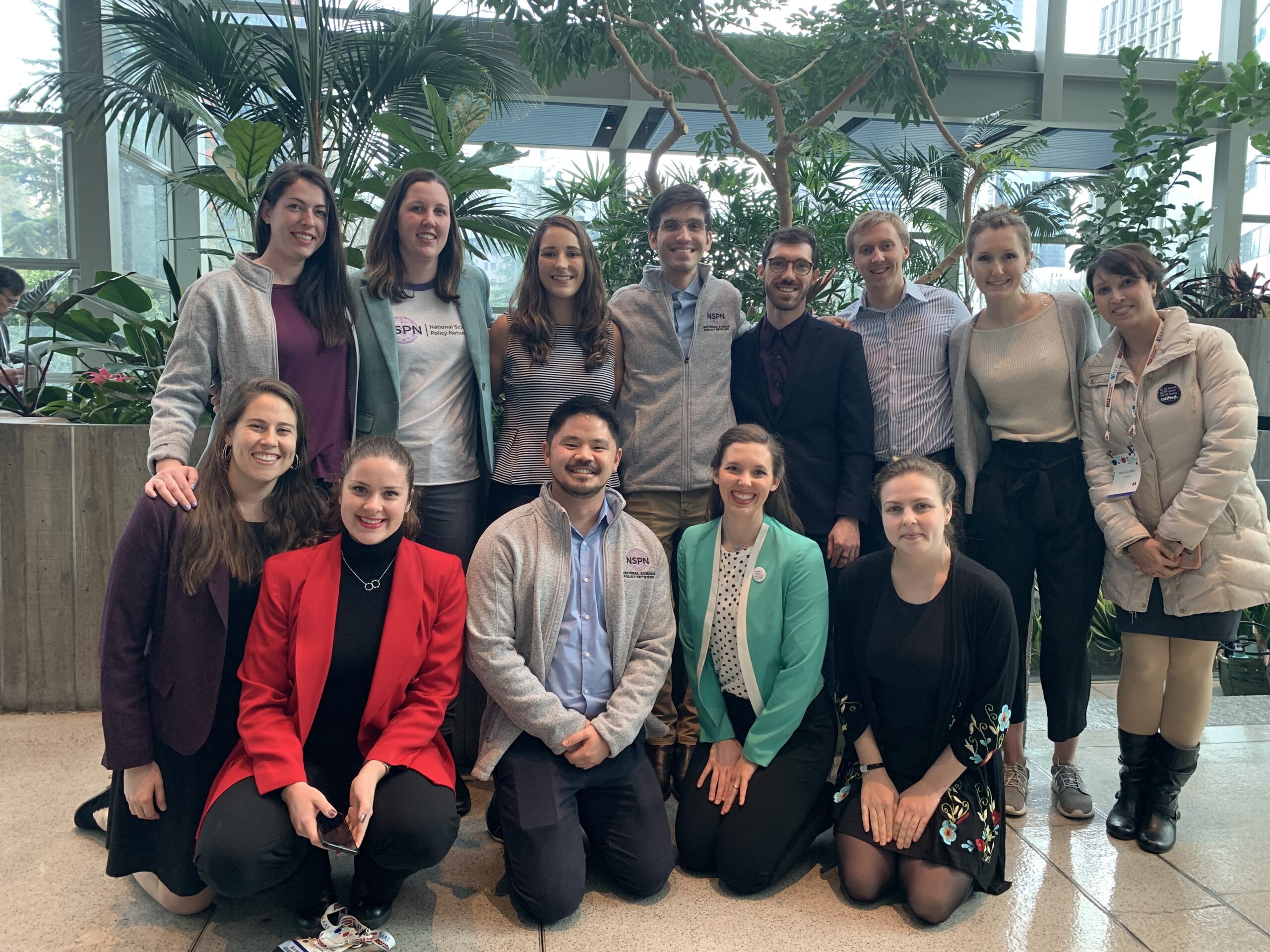Engagement and Advocacy at the AAAS Annual Meeting

More than 9,000 scientists, educators, and journalists gathered in Seattle, February 13-16, 2020, for presentations, lectures, and networking at the American Association for the Advancement of Science (AAAS) Annual Meeting: “Envisioning Tomorrow’s Earth.” Sessions and discussions focused on climate change, biomedical and engineering advances, science advocacy and communication, and future health strategies. This was my third AAAS meeting and I arrived in Seattle having recently completed my PhD in biomedical science at The Rockefeller University.
One session, titled “Science is Political, Not Partisan: Best Practices for Science Policy Advocates” was organized by the director of membership at the National Science Policy Network (NSPN), Holly Mayton, PhD. The panel discussion featured two early-career scientists, Eric Lee, PhD and Sam Anderson, PhD, who both developed policy projects at their graduate institutions on probiotic regulations and forensic science, respectively. The third panelist, Ali Nouri, PhD, president of the Federation of American Scientists, has spent his career communicating with legislators and is spearheading the Congressional Science Policy Initiative. This Initiative is helping scientists to translate and communicate their research to policy makers. This panel inspired senior attendees to ask during the Q&A how they can support early-career scientists who are working on important policy projects and how they themselves and other organizations like the Federation of American Scientists can successfully communicate science to policy makers.
Bill Gates, founder of the Bill and Melinda Gates Foundation and co-founder of Microsoft, spoke at one of the plenary sessions. Gates spoke about his Foundation’s initiatives to reduce infant mortality, address climate change, and learn from new gene editing tools. He expressed the importance of science in improving lives around the world.
The Union of Concerned Scientists coordinated a session titled “Citizens, Scientists, and Elections: How Scientists are Engaging in 2020”, which explored ways scientists can actively engage in elections. The AAAS organized another panel titled “How Congress Uses Science and Technology for Policy: Emerging Research.” At this panel discussion, a panelist described a new report, “Science and Technology Assessment: A Congressionally Requested Review.” The report identifies where Congress needs more science and technology support and specifically recommends refunding the Office of Technology Assessment which previously provided science and technology support directly to Congress.
The AAAS conference is a once-a-year convening for those interested in science policy and advocacy. It is a chance to learn from and interact with many scientists at all levels. During the conference, I had the opportunity to work at the National Science Policy Network (NSPN) information booth in the exposition hall. NSPN is a new network connecting early-career scientists passionate about science policy. At the NSPN expo table, I shared information about how NSPN funds early-career scientist run science policy projects and has developed new initiatives such as the memo writing competition in collaboration with the Journal of Science Policy and Governance. It was inspiring to hear so many scientists, especially undergraduates, excited about the network and telling stories about science policy events at their own institutions, especially in a year where advocacy and engagement were such prominent themes.
Sarah Ackerman, PhD, is a Howard Hughes Medical Institute Science Policy Fellow at Research!America. She served as the Eastern Hub Co-Chair for the National Science Policy Network. She completed a PhD in Biomedical Science at The Rockefeller University and did her undergraduate work at the State University of New York at Geneseo.




